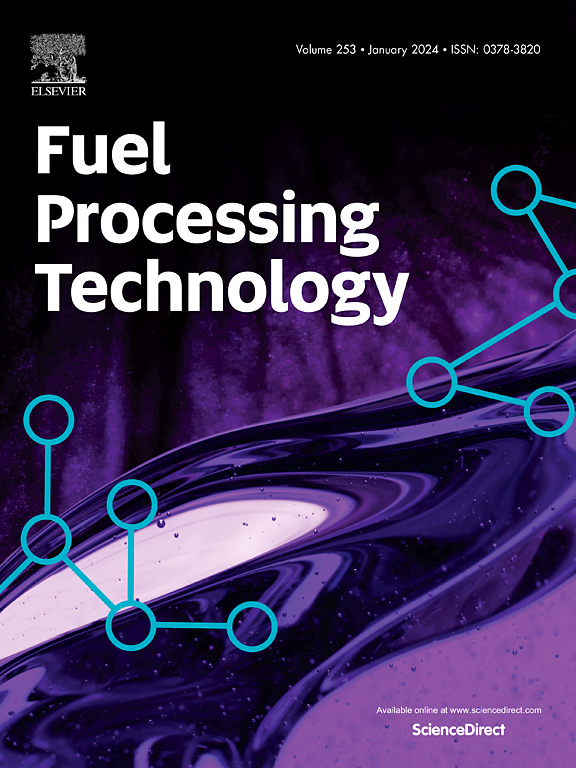Influence of pilot diesel ratio and engine load on combustion behaviour in a biogas-fueled RCCI engine
IF 7.7
2区 工程技术
Q1 CHEMISTRY, APPLIED
引用次数: 0
Abstract
The present study aims to analyse the combustion-related parameters in a reactivity-controlled compression ignition (RCCI) engine with a dual-fuel approach for diesel and biogas fuels. The objective is to investigate how varying biogas energy share ratios (50 %, 60 %, 70 %, and 80 %) affect combustion behaviour at different engine loads (40, 60, and 80 Nm). All tests were conducted at a constant engine speed of 1750 rpm. Results from dual-fuel operation were compared to baseline diesel combustion. The findings indicated that an increase in the biogas addition generally resulted in the deterioration of combustion stability, as evidenced by elevated ignition delays and COVIMEP values. However, this negative impact was mitigated at higher engine loads and increased diesel pilot ratios. As the quantity of biogas increased, a rise in cylinder pressures, pressure rise rates, ignition delays and ringing intensities was observed. Conversely, combustion stabilities, peak heat release rates and combustion durations all decreased. This research contributes to advancing sustainable practices in engine technology by promoting alternative fuel adoption in internal combustion engines, aligning with efforts to enhance energy efficiency and sustainability in the transportation sector.
先导柴油比和发动机负荷对沼气RCCI发动机燃烧性能的影响
本研究旨在分析反应控制压缩点火(RCCI)发动机的燃烧相关参数,采用双燃料方法,柴油和沼气燃料。目的是研究不同的沼气能量份额比例(50%、60%、70%和80%)如何影响不同发动机负载(40、60和80 Nm)下的燃烧行为。所有测试都是在发动机转速为1750 rpm的恒定条件下进行的。双燃料运行的结果与基线柴油燃烧进行了比较。研究结果表明,沼气添加量的增加通常会导致燃烧稳定性的恶化,这可以从着火延迟和COVIMEP值的升高中得到证明。然而,这种负面影响在更高的发动机负载和更高的柴油先导比下得到缓解。随着沼气量的增加,气瓶压力、压力上升率、点火延迟和振铃强度都有所上升。相反,燃烧稳定性、峰值放热率和燃烧持续时间均下降。这项研究通过促进内燃机替代燃料的采用,有助于推进发动机技术的可持续实践,与提高交通运输部门的能源效率和可持续性的努力保持一致。
本文章由计算机程序翻译,如有差异,请以英文原文为准。
求助全文
约1分钟内获得全文
求助全文
来源期刊

Fuel Processing Technology
工程技术-工程:化工
CiteScore
13.20
自引率
9.30%
发文量
398
审稿时长
26 days
期刊介绍:
Fuel Processing Technology (FPT) deals with the scientific and technological aspects of converting fossil and renewable resources to clean fuels, value-added chemicals, fuel-related advanced carbon materials and by-products. In addition to the traditional non-nuclear fossil fuels, biomass and wastes, papers on the integration of renewables such as solar and wind energy and energy storage into the fuel processing processes, as well as papers on the production and conversion of non-carbon-containing fuels such as hydrogen and ammonia, are also welcome. While chemical conversion is emphasized, papers on advanced physical conversion processes are also considered for publication in FPT. Papers on the fundamental aspects of fuel structure and properties will also be considered.
 求助内容:
求助内容: 应助结果提醒方式:
应助结果提醒方式:


